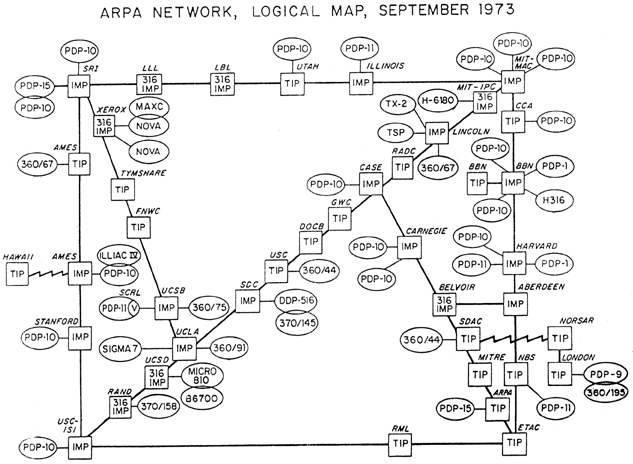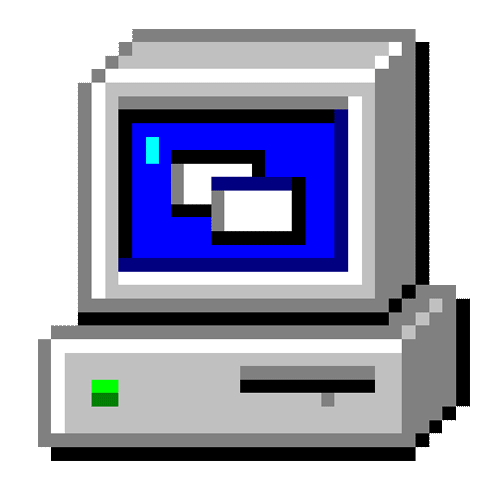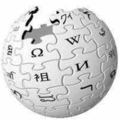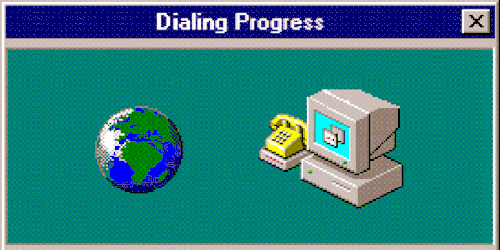:-)
Introduction:
you don't understand the internet
First, how the fuck does this person not know what the internet is?
Second, “well, like, yeah, obviously I know what the internet is, but, like, I don’t know really how to explain it, but I definitely know what it is.”
There is a big difference between knowing what something is and understanding it. Everyone knows what the internet is (excluding the hypothetical person that just asked about it), but most people don’t understand it. It’s totally ok though, because I’m about to teach you.

:-)
part one:
where did the internet come from?
APRANET
The Advanced Research Projects Agency Network was an early packet switching network and the first network to implement the protocol suite TCP/IP. Both technologies became the technical foundation of the Internet.
made it possible to send information from one computer to another. It was mainly for science stuff.In 1973, the development of
Internet Protocol
A set of rules governing the format of data sent over the Internet or other network.
helped expand the size of the network.ARPANET was made international that year with one node in Norway and another in London. Below is ARPA Network Logical Map. It’s a map of the entire internet at the time.
 For the next 20 years, ARPANET will be passed over to a new company almost too many times to count. They kept changing the name of what it was called and most of the development is not very exciting. If you want to get into the nitty gritty of what happened in those 20 years you can read it here, otherwise, here are some milestones and internet firsts:
For the next 20 years, ARPANET will be passed over to a new company almost too many times to count. They kept changing the name of what it was called and most of the development is not very exciting. If you want to get into the nitty gritty of what happened in those 20 years you can read it here, otherwise, here are some milestones and internet firsts:1972
E-Mail
Messages distributed by electronic means from one computer user to one or more recipients via a network.
is introduced (by Ray Tomlinson)1982 “Internet” becomes a word
1983
Domain Name System
The system by which Internet domain names and addresses are tracked and regulated. Also referred to as DNS.
is created1985 Symbolics.com is the first registered domain name
1986 A thing called
NSFNET
The National Science Foundation Network (NSFNET) was a program of coordinated, evolving projects sponsored by the National Science Foundation (NSF) beginning in 1985 to promote advanced research and education networking in the United States.
connects computers to other computers. 1988
Internet Worm
An Internet worm is type of malicious software (malware) that self-replicates and distributes copies of itself to its network. These independent virtual viruses spread through the Internet, break into computers, and replicate without intervention from and unbeknownst to computer users.
breaks 10% of the internet for a little1990 The
first search engine
The first search engine created was Archie, created by Alan Emtage, a student at McGill University in Montreal.
is created and no, it’s not google1992 “surfing the internet” becomes a thing that people say
Then it’s 1993. There are 600 websites on the internet (which at the time seemed like a lot). In 1985 when NSFNET was created, it was connecting 2,000 computers. In 1993 that number had grown to 2 million. That’s a lot.

:-)
part two:
what did the internet turn into?
By 1994 the internet is becoming so widely used that you no longer have to be a big company or corporation to create a website. This is when the first blogs hit the web.
This brings us to 1996 when
The Internet Archive
The Internet Archive is a San Francisco–based nonprofit digital library with the stated mission of "universal access to all knowledge". Founded by Brewster Kahle in May 1996, the Archive is a 501(c)(3) nonprofit operating in the United States.
is founded.Craig Newmark creates Craigslist in 1999. This completely revolutionizes classifieds by making them readily available all over the globe.
In 2001
The Creative Commons
Creative Commons (CC) is an American non-profit organization devoted to expanding the range of creative works available for others to build upon legally and to share.
are built. So is Wikipedia. In 2 years, Wikipedia passes its first 100,000 articles. While the internet was initially created to pass data back and forth it rapidly became a giant library of knowledge and information. Obviously there were other big developments over this time, however, those five years became quintessential in remodeling the internet into what it is today.
While the internet was initially created to pass data back and forth it rapidly became a giant library of knowledge and information. Obviously there were other big developments over this time, however, those five years became quintessential in remodeling the internet into what it is today.Over the next decade and a half websites like Facebook, Youtube, Twitter, Tumblr, Pinterest, and literally every other site you can think of, were created.
It’s extremely difficult to count how many websites exist on the internet. However, it’s estimated that are well over 1 billion and that number is increasing every second. Additionally, it’s estimated that around 3.2 billion people use the internet. That’s half of the world’s population. Which brings me to you.

:-)
Part three:
what does this have to do with me?
The main reason being that when things get deleted, they’re gone.
I’m not talking about about a celebrity’s nude photo or your co workers racist tweet. Obviously, there are ways of retaining those things. I’m talking about entire websites and social platforms that become inactive and go offline.
Think of it like this.
You decide to make a blog one day using a blogging platform. Everyday you write down what you did that day directly through that blogging platform’s site. You’ve been cataloging your life for three years. That’s 1,095 days worth of you telling the world about your life. More importantly, you’re storing that information so that if need be, you can go back to March 27th 2015 and read exactly what you did that day.
Now, imagine that the blogging site that you have been using all these years goes bankrupt. One day, the blogging platform you’ve been using, as well as, your personal blog, are gone.
You just lost three years of information and so did everyone else using that site.
I know what you’re thinking, that would never happen. Well, you’re wrong. It's happened a bunch of times to a bunch of people.
Now think of every social media site you have an account on. Imagine if those sites went offline.
Don’t forget about websites that store not just memories, but articles, studies, videos, photos, the list goes on.
The internet is often compared to
The Library of Alexandria
The Royal Library of Alexandria or Ancient Library of Alexandria in Alexandria, Egypt, was one of the largest and most significant libraries of the ancient world.
because of the immense amount of knowledge each housed and archived.Ultimately, The Library of Alexandria was destroyed and the world lost what is considered some of the most invaluable knowledge to ever exist.
There are new websites created every second. Simultaneously, there are sites being deleted, going offline, and losing funding. The internet is being built while it’s being destroyed and as you are reading this, information is disappearing.

:-)
Part four:
now what?
Have a great day and good luck on saving the web.
Back to top